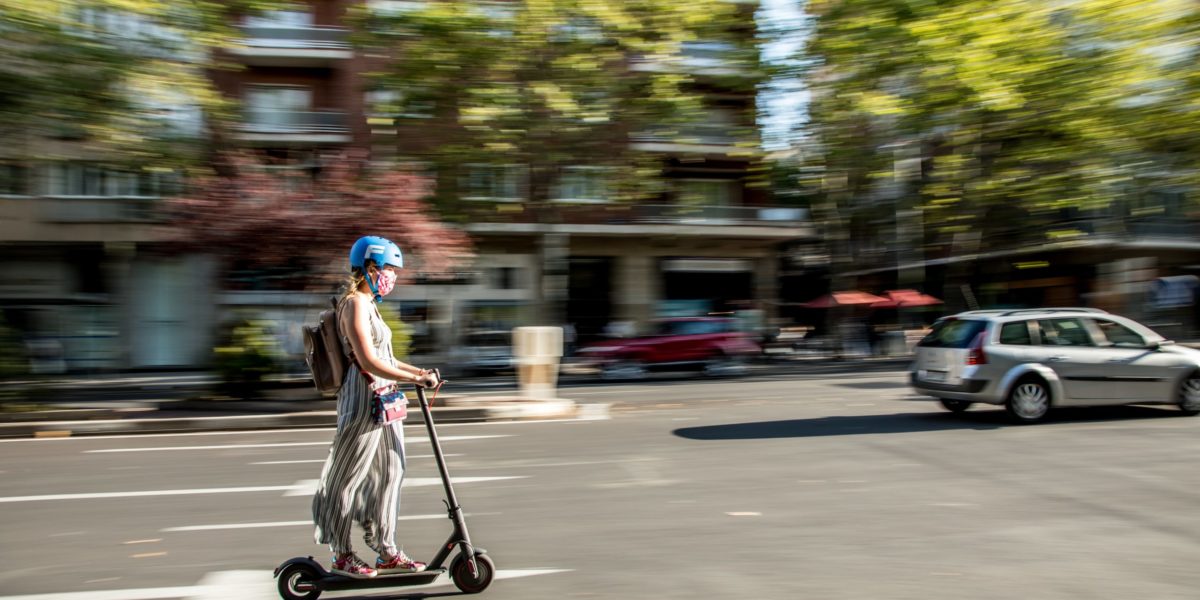Riding rough shod over safety
Calls for government to make a decision on legalising e-scooters
The government needs to get on its bike and regulate e-scooters.
This is the call from industry and road safety experts following the Parliamentary Select Committee investigations.
At present, the government is continuing to run its extended trial of rental e-scooter in various cities across the country. However, the huge increase in privately owned scooters, which are currently illegal to use in public, s causing concern.
As deaths and injuries increase, there is a growing need for official regulation or clamping down on public use.
Government has to make a decision, either way, asa matter of urgency.
Transport Bill on trial
In May 2022, the Government unveiled a new Transport Bill. This featured its intentions to allow the public use of privately-owned e-scooters. However in the nine months that have followed, no progress has been made.
Earlier in February, the Transport Committee revisited the ongoing question of how private e-scooters should be regulated, receiving oral evidence from a panel of experts.
The panellists expressed frustration over the delay to the Transport Bill. At the same time, they called for the Government to start taking action.
David Davies, executive director of PACTS, said: “Given where we are, with the Government saying they will legalise, we want them to get on with it.
“They say… that there is no timetable now for the Transport Bill, so it is to be legislated on some time in the future, whenever that occurs. That is a frustration.”
Policing
Law enforcement is also struggling to know and understand what they are supposed to do in what is a confusing situation.
Commander Kyle Gordon, National Police Chiefs’ Council (NPCC) lead for roads policing operations, said that while he remains neutral on legalisation, he “would like regulation”.
“The sooner it came in, the more helpful that would be for us”, he told the committee.
Despite their illegality, the prevalence of privately owned e-scooters on public land continues to grow.
On board
Ben Bradshaw MP, member of the Transport Committee, questioned whether, in the absence of legalisation, “more and more people are going to buy private ones and use them on the roads or wherever because it is a cheap and easy way of getting around”.
Clive Wood, lead regional policy and campaigns manager at Guide Dogs UK, stressed that legislation needs to be put in place “to make it safe for everybody”.
He said: “You cannot put the genie back in the bottle. There are over a million privately owned e-scooters.
“[Legalisation] would be very difficult, but we need to get on with it. We need to legislate. We need to put regulation in place to make it safe for everybody. It is not just for blind and partially sighted people but for road users, e-scooter users and everybody. That is the important thing.”
Trials inconclusive
The session also questioned what has been learnt from the trials of public-hire schemes in towns and cities across England.
David Davies said his impression is that “some have gone better than others”.
He told the committee: “We have had contact from some operators who clearly want to engage, particularly on the safety issues, and we are very pleased to have had that.
“Others have not chosen to engage and, frankly, have not given so much importance to safety issues.
“Similarly, some local authorities have placed more emphasis on revenue benefits, while others have given much stricter preference to safety and management.”
Clive Wood said they have been “quite positive”.
He said: “There are some elements of inconsistency in the types of information that are being provided by operators and local authorities around the statistics on the use of e-scooters and the incidence of enforcement and accidents.
“There are some inconsistencies, but in general we feel that it is quite positive.”
Public hire trials commenced in July 2020 and were initially due to last until 2021. In July 2022 the trial period was extended to May 2024.
Clive Wood said he was “quite disappointed that the evaluation period had been extended”.
However, Commander Gordon noted the extension has been “useful” from a policing point of view.
Read more
You can read a full report here at Road Safety GB.
A transcript of the full session is available here via the Transport Committee website.





